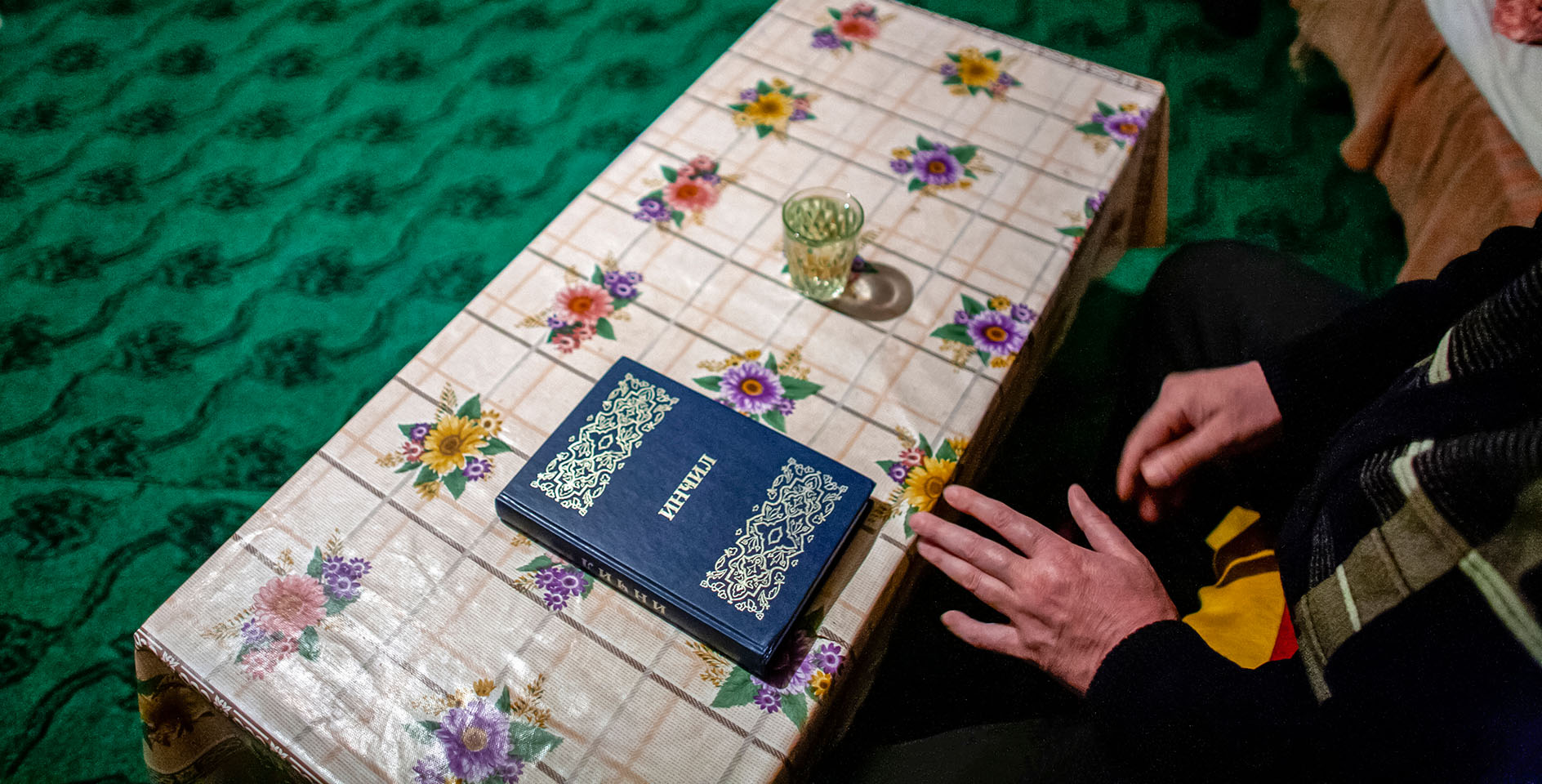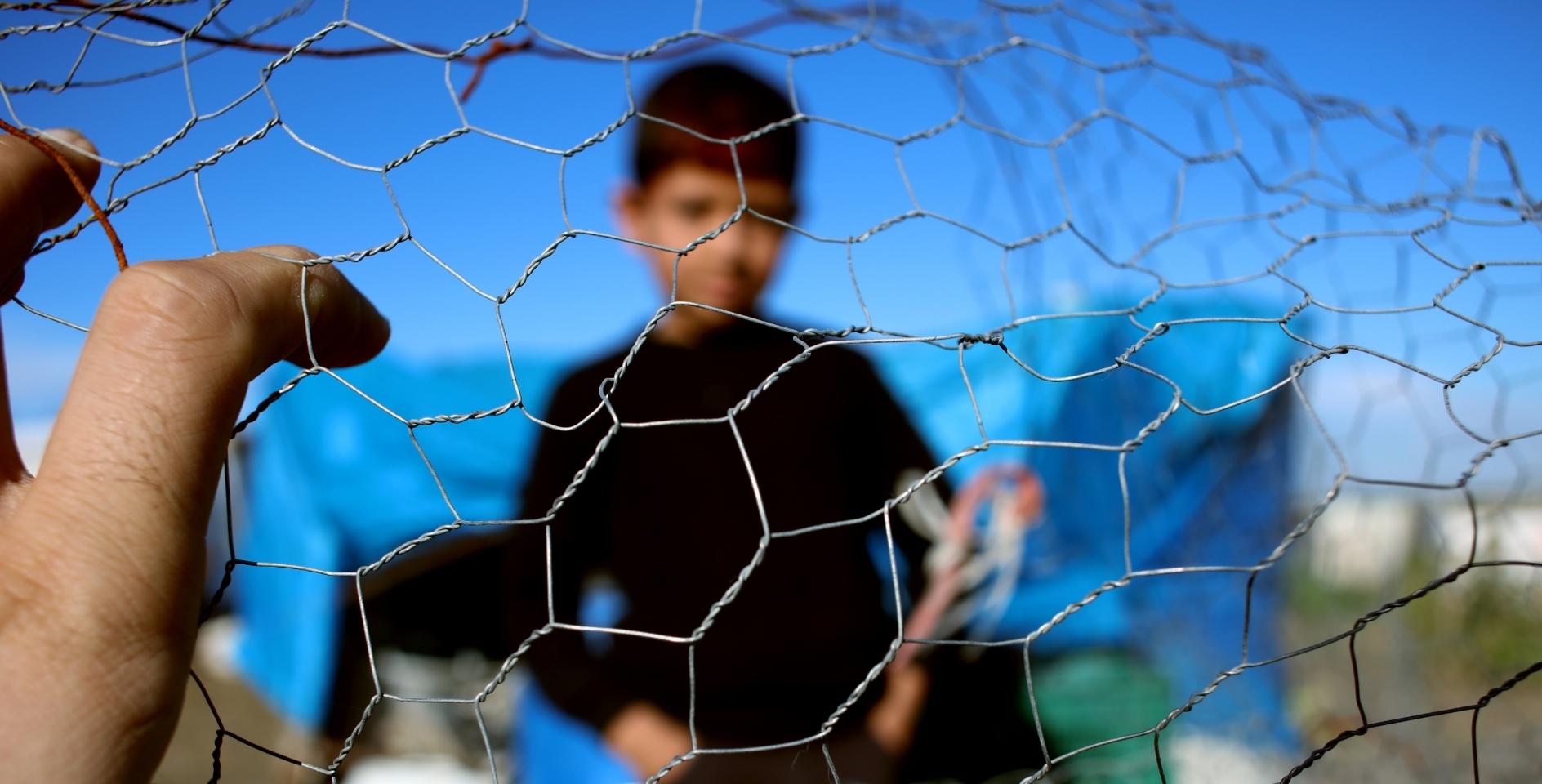It’s tragic that we live in a world that includes human trafficking of any kind, but especially child sex trafficking. Children are some of the most vulnerable among us and should be cherished, protected, and nurtured. But the reality is that many are being abused and exploited by predators and are in need of help. Thankfully, God is raising up people and organizations dedicated to ending sex trafficking and supporting victims. Gretchen Smeltzer started Into the Light with these goals and shares below how Christians can join this mission.
Elizabeth Bristow: Gretchen, tell our readers more about Into the Light, a nonprofit organization you started in 2015 to end sex trafficking and bring hope to survivors. How did it begin?
Gretchen Smeltzer: Into the Light began as God broke the hearts of followers of Jesus over the issue of child sex trafficking and then brought them together to a small town in Arkansas. None of us were survivors of sex trafficking or had previous experience working with trafficking victims. However, we were willing to learn how we could be effective in identifying victims and providing them with the support they needed to overcome this evil atrocity.
We began by praying. Our founding board spent many nights on our knees together. We spent a great deal of time researching the need in our local community and state. After speaking with those in law enforcement who worked with victims, we learned residential care for victims was a great need. Believing God was leading us to open a home where survivors could begin the process of healing, we began communicating our vision to the public. God used this season to teach us what it looked like to provide trauma-informed care for victims. Then God revealed to us that we could connect with child trafficking victims in Juvenile Detention Centers. Through a partnership with Traffick911, we were able to launch prevention programs in four Arkansas Juvenile Detention Centers in 2016. Our prevention teams engaged weekly with trafficking victims who were hidden in plain sight under other charges.
God taught us that we could offer places of refuge by offering a listening ear, believing a child’s story, and communicating God’s unconditional love. Our prevention program connected with hundreds of victims in the Juvenile Detention Centers. By 2017, we could see that victims needed ongoing safe community, trauma-informed advocacy, and life-skills mentorship. Into the Light received a grant to provide long-term advocacy and mentorship to victims of trafficking. Each year, this program continues to grow. We have six full-time advocates who serve 16 counties in Arkansas. In 2021, our organization supported 165 victims. Our services include:
- Crisis intervention
- Safety planning for newly identified victims of trafficking
- 24/7 crisis line to offer support to all of our current clients
- Court, legal, and law enforcement advocacy
- Mental health needs
- Transportation and housing assistance
- Long-term mentorship to assist in building a life after trafficking
The basis of what we do at Into the Light is modeled after what God requires of us from Micah 6:8. We seek justice for victims, we share his mercy, and we seek to walk humbly with God in all that we do.
EB: What do Christians need to know about the issue of child sex trafficking?
GS: It is happening to children attending our churches, schools, and living in our neighborhoods. Readers may want to stop reading at this point because that is just way too scary to think about. Christians, please don’t! Who has more hope that God can bring beauty from ashes than followers of Jesus Christ? This is what our God does, right? Christians don’t need to live in fear of human trafficking. While it is dark, this is why Jesus came. Into the Light gets its name from John 1:5. The Light (Jesus Christ) shines in the darkness, and the darkness has not overcome it. Ending the trafficking of children is God’s heart. We can have great confidence in our God, our protector and defender — that he will equip believers to face the darkness no matter how dark or dangerous it may seem. While no one enjoys thinking about children being trafficked in their own community, we must. If no one thinks through this difficult issue and creates collaborative ways to end child trafficking, then it will continue.
EB: Like you said, many people are unaware that this horrendous issue happens in our own communities. Can you give our readers a snapshot of this reality?
GS: It is important to understand that anyone can be a victim of trafficking. Trafficking happens to both girls and boys, however a higher percentage of trafficking is reported by females. Trafficking is the exploitation of vulnerabilities, and children are innately vulnerable. They are naïve and don’t always understand the manipulation, power, and control methods used by adults. Most of the time a child is sold for sex by someone they know. Traffickers are most frequently an older male or female whom the child thinks they can trust, a family member or close family friend, and/or an individual posing as a boyfriend/girlfriend. Children involved in social services and runaway and homeless youth pose the highest risks of being trafficked. When someone lacks basic needs like food, clothing, and shelter, traffickers can offer to meet these with the goal of exploiting a child for their financial gain. Common red flags for youth include:
- Suddenly becoming detached from family and friends;
- Contradicting personal information about their living and work locations and conditions;
- Not being allowed to take adequate breaks for food or water while at work;
- Recruited for a different work than they are currently doing or has a debt to an employer or recruiter that they cannot pay off;
- Noticeable change in their appearance or material goods without being able to explain where they received the resources to pay for the goods;
- Shows signs of physical or sexual abuse; appears fearful, anxious, depressed, overly submissive, and avoids eye contact;
- Suffers from substance abuse problems or sexually transmitted diseases;
- Sudden presence of or older “boyfriend,” “girlfriend,” or “friend.”
EB: How have you witnessed God bring beauty from ashes this last year through the work of Into the Light? Can you share some stories of success you’ve seen as an organization?
GS: This last year, our partnerships deepened with law enforcement and social services. This has led to intervention for many children being trafficked. We have witnessed very brave children share their trafficking experience with law enforcement and prosecutors. We have seen survivors grow into young adults and overcome great trauma to pursue dreams and goals for their lives.
A few months ago, I had the privilege of standing with a former client, now dear sister in Christ, who shared her story of being trafficked but then rescued from a hotel by one of our advocates and law enforcement. She bravely and confidently shared how God had been with her through all of her darkest moments and how he had been her light and was helping her overcome her past. Survivors do the hard work of battling every day to overcome what the enemy has stolen from them. Even though it is difficult at times, our advocates know it is such a privilege to walk alongside these brave children and young adults. Some days, there are great successes, and sometimes there are great struggles. But God is faithful in it all.
EB: What should our churches know about supporting victims of sex trafficking?
GS: It’s important for churches to understand that victims of human trafficking often have complex trauma. This occurs when a person is victimized multiple times. Healing and wholeness will not happen overnight. As humans who are loving and supporting others, we often want people to heal and be changed quickly. Christians called to share God’s unconditional love and mercy with victims of human trafficking must know there are no quick fixes. However, God is faithful and will redeem what the enemy has stolen and teach us about his unconditional love and mercy along the way. And the Holy Spirit will give us wisdom and guidance on how to care for each person individually.
EB: How would you encourage a pastor to help stir up the hearts of his flock to care for the vulnerable?
GS: A pastor could focus on studying Psalm 10 and Micah 6:8, allowing the Spirit to lead him on what his church body needs to hear from these scriptures. I would encourage a pastor to lead his flock in a focused month of prayer for victims of human trafficking in their own community, nation, and world. Before the time of prayer, a pastor could educate the body of believers on the issue of human trafficking. The prayer time could be focused on asking God to reveal how human trafficking is happening in their own community, wisdom and clarity to see victims, and that God would give them the compassion and perseverance to show the love of Christ to victims. Through prayer, God will be faithful to stir the hearts of those in the body who are called to end human trafficking.
Those in church leadership, counseling, and shepherding roles should all be trained on understanding and identifying human trafficking and how it happens in their community. Most likely they have already encountered a victim of human trafficking and were unaware. In the last nine years, I have been a part of two churches, both in small, Southern towns, and have met survivors or victims attending. Thankfully, there is wonderful training easily accessible online. Shared Hope International has a Faith in Action toolkit to help church leaders share about the need to address human trafficking and learn how to equip believers to impact their communities.
EB: For anyone who has been stirred to action to help victims in their communities, what are the next steps?
GS: Pray and then look in your own community to see if there are any organizations or initiatives that are currently serving victims of human trafficking. Ask how you can support their efforts. Ask to meet with the volunteer coordinator or someone in leadership and share how God has stirred your heart. Then be willing to serve in any way. Lastly, be patient. It takes time to learn how to effectively support victims of trafficking. Allow those working with victims to slowly teach you. Don’t expect an opportunity to begin serving victims if you don’t have any previous experience.
If you can’t find local programs that support victims, I would suggest praying about how you can partner with local social services to support victims. Reach out to the department of child and family services or juvenile services, and tell them you have a heart to serve victims of trafficking. Ask them what the needs are for trafficking victims in your community and how you could support them. God may even lead you to start a new initiative in your community to help love and support victims.
EB: It would be easy for many of us to turn away from the horrors of sex trafficking. What’s at stake if we do?
GS: To be completely honest, lives are at stake. Victims of human trafficking have a much lower life expectancy due to the dangerous nature of living such an oppressed life. Many victims of trafficking die from drug overdoses, suicide, diseases, and homicide. Ignoring the issue also continues to allow this to be a normal part of our culture. Unfortunately, it is acceptable to pay for sex in our culture. If there wasn’t a demand for sex or free labor, then traffickers would not sell and exploit victims. Trafficking happens because at its core, it is a business model. Traffickers exploit humans for their financial gain.
We must not turn a blind eye because all people are created in God’s image. Most importantly, if Christians turn away from the horrors of trafficking we are being disobedient to what God has asked of us to seek justice, show mercy, and humbly walk with him. Not everyone is called to the frontlines, but all of us are called to love God and love our neighbor. We can all pray for victims to be seen and receive the support they need to overcome what they have been through.
EB: How can Christians learn more about these issues?
G: You can start with researching about the issue online. There are many excellent resources. Sharedhope.org, Polarisproject.org, and www.dhs.gov/blue-campaign all have excellent free education online.







